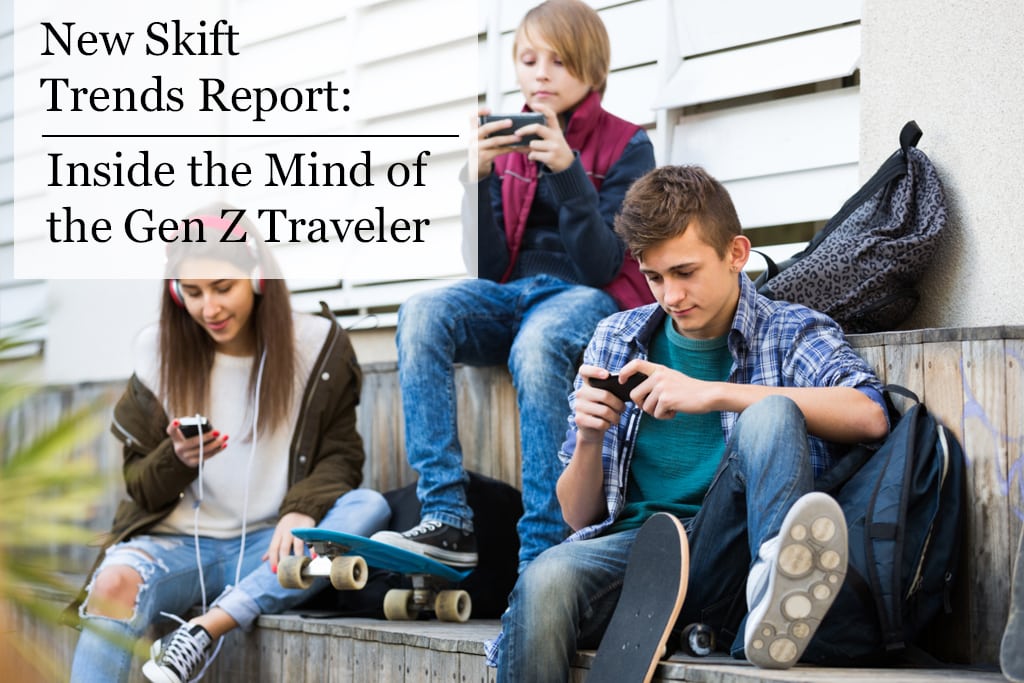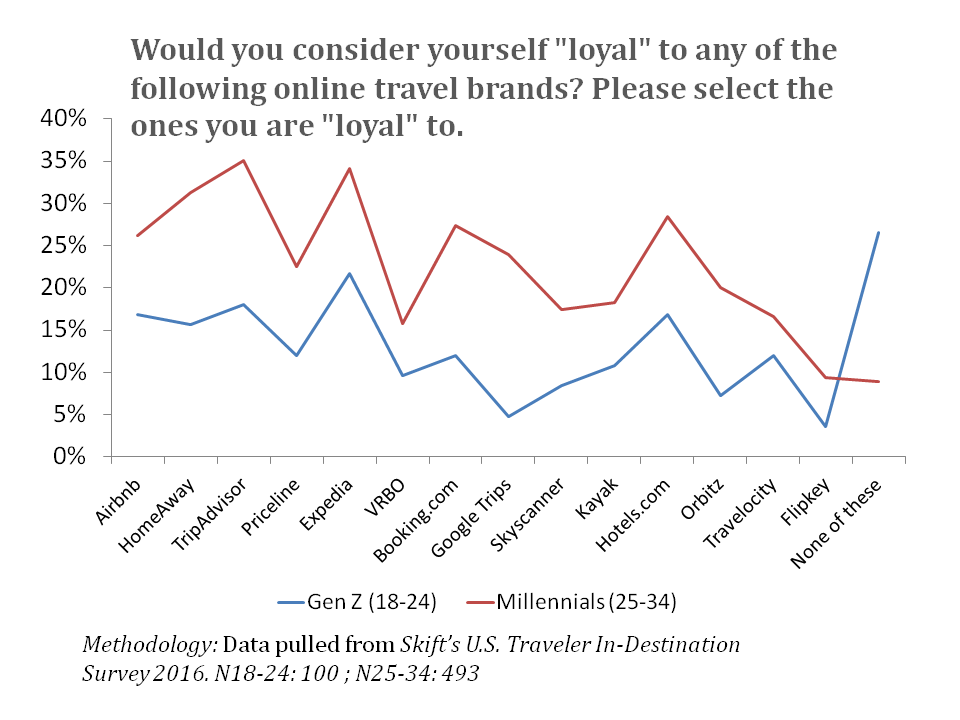New Skift Trends Report: Inside the Mind of the Gen Z Traveler

Skift Take
Today we are launching the latest report in our Skift Trends Reports service, Inside the Mind of the Gen Z Traveler.
In this report we look at the latest and perhaps most enigmatic generation of traveler: the "Digital Natives" or those born into a world of social networks, digital platforms, and mobile computing. Much of the discussion about travel and generational divides has focused on distinctions between the Millennial generation and more mature travel cohorts. Yet, in the incessant paddle toward bluer oceans, travel marketers are now starting to look further down the horizon to align brands and product offerings with those who have just begun to explore the world through travel.
Here, we examine a divide between Generation Y and Generation Z, to understand whether and why travel marketers should make these distinctions, what makes these two groups distinct, how they use technology differently, and how they interact with technology while traveling. We define (or redefine) the digital native traveler and look for the intersections between these two converging yet distinct generational cohorts.
Conclusions are also based in part on Skift's U.S. Traveler In-Destination Survey 2016, a comprehensive consumer study fielded to 1,200 U.S. active travelers participating in a leisure trip at the time of the survey. This initiative gave us an unprecedented opportunity to delve deeper into the behaviors of those consumers actively engaged in a travel experience. Among the numerous insights garnered from the data, we discover that technology adoption, particularly when it comes to mobile platforms, is not necessarily synonymous with age.
The common belief goes that the younger the consumer, the more engaged he or she will be with technology and mobile computing. In our survey, we discover that various other factors beyond age determine how the youngest range of adult traveler will participate in travel and, consequently, interact with travel brands.
Brand loyalty for online travel platforms is a prime example of where youth may not necessarily point to a more digitally savvy consumer. In our survey data, we see that travelers between the ages of 18 and 24 are significantly less likely to claim loyalty to any of the widely recognized online travel intermediaries (see Figure One).
Figure One
Preview and Buy the Full Report
Subscribe to Skift Trends Reports
This is the latest in a series of twice-monthly reports aimed at analyzing the fault lines of disruption in travel. These reports are intended for the busy travel industry decision maker. Tap into the opinions and insights of our seasoned network of staffers and contributors. Over 100 hours of desk research, data collection, and/or analysis goes into each report.
After you subscribe, you will gain access to our entire vault of reports conducted on topics ranging from technology to marketing strategy to deep-dives on key travel brands. Reports are available online in a responsive design format, or you can also buy each report a la carte at a higher price.





